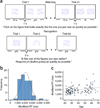Wellness Products That Work!
US National Library of Medicine National Institutes of Health
Search database
J Alzheimers Dis. 2010;19(4):1123-39. doi: 10.3233/JAD-2010-1312.
Neuronutrition and Alzheimer's disease.
Ramesh BN1, Rao TS, Prakasam A, Sambamurti K, Rao KS.
Author information
Abstract
Alzheimer's disease (AD) is a complex neurological disorder resulting from both genetic and environmental factors with the latter being particularly important for the sporadic form of the disease. As such, diets rich in saturated fatty acids and alcohol, and deficient in antioxidants and vitamins appear to promote the onset of the disease, while diets rich in unsaturated fatty acids, vitamins, antioxidants, and wine likely suppress its onset. In addition, evidence suggests that diets rich in polyphenols and some spices suppress the onset of AD by scavenging free radicals and preventing oxidative damage. Metal ions are known to catalyze the production of free radicals and induce mental retardation or dementia, and several studies have also identified metals such as Pb, Fe, Al, Cu, and Zn in AD pathogenesis. While specific metal chelators have been tested for therapy, they have not been very successful, probably due to their late administration, i.e., after brain damage has been triggered. Since several dietary polyphenols are known to chelate metals, their routine use may also be protective against the onset of AD. In this review, we summarize beneficial dietary techniques in the fight against AD.
PMID: 20308778 PMCID: PMC2931824 DOI: 10.3233/JAD-2010-1312
[Indexed for MEDLINE] Free PMC Article
- Share on FacebookShare on TwitterShare on Google+




JAMA Intern Med. 2015 Jul;175(7):1094-103. doi: 10.1001/jamainternmed.2015.1668.
Mediterranean Diet and Age-Related Cognitive Decline: A Randomized Clinical Trial.
Valls-Pedret C1, Sala-Vila A1, Serra-Mir M1, Corella D2, de la Torre R3, Martínez-González MÁ4, Martínez-Lapiscina EH4, Fitó M3, Pérez-Heras A1, Salas-Salvadó J5, Estruch R6, Ros E1.
Author information
Abstract
IMPORTANCE:
Oxidative stress and vascular impairment are believed to partly mediate age-related cognitive decline, a strong risk factor for development of dementia. Epidemiologic studies suggest that a Mediterranean diet, an antioxidant-rich cardioprotective dietary pattern, delays cognitive decline, but clinical trial evidence is lacking.
OBJECTIVE:
To investigate whether a Mediterranean diet supplemented with antioxidant-rich foods influences cognitive function compared with a control diet.
DESIGN, SETTING, AND PARTICIPANTS:
Parallel-group randomized clinical trial of 447 cognitively healthy volunteers from Barcelona, Spain (233 women [52.1%]; mean age, 66.9 years), at high cardiovascular risk were enrolled into the Prevención con Dieta Mediterránea nutrition intervention trial from October 1, 2003, through December 31, 2009. All patients underwent neuropsychological assessment at inclusion and were offered retesting at the end of the study.
INTERVENTIONS:
Participants were randomly assigned to a Mediterranean diet supplemented with extravirgin olive oil (1 L/wk), a Mediterranean diet supplemented with mixed nuts (30 g/d), or a control diet (advice to reduce dietary fat).
MAIN OUTCOMES AND MEASURES:
Rates of cognitive change over time based on a neuropsychological test battery: Mini-Mental State Examination, Rey Auditory Verbal Learning Test (RAVLT), Animals Semantic Fluency, Digit Span subtest from the Wechsler Adult Intelligence Scale, Verbal Paired Associates from the Wechsler Memory Scale, and the Color Trail Test. We used mean z scores of change in each test to construct 3 cognitive composites: memory, frontal (attention and executive function), and global.
RESULTS:
Follow-up cognitive tests were available in 334 participants after intervention (median, 4.1 years). In multivariate analyses adjusted for confounders, participants allocated to a Mediterranean diet plus olive oil scored better on the RAVLT (P = .049) and Color Trail Test part 2 (P = .04) compared with controls; no between-group differences were observed for the other cognitive tests. Similarly adjusted cognitive composites (mean z scores with 95% CIs) for changes above baseline of the memory composite were 0.04 (-0.09 to 0.18) for the Mediterranean diet plus olive oil, 0.09 (-0.05 to 0.23; P = .04 vs controls) for the Mediterranean diet plus nuts, and -0.17 (-0.32 to -0.01) for the control diet. Respective changes from baseline of the frontal cognition composite were 0.23 (0.03 to 0.43; P = .003 vs controls), 0.03 (-0.25 to 0.31), and -0.33 (-0.57 to -0.09). Changes from baseline of the global cognition composite were 0.05 (-0.11 to 0.21; P = .005 vs controls) for the Mediterranean diet plus olive oil, -0.05 (-0.27 to 0.18) for the Mediterranean diet plus nuts, and -0.38 (-0.57 to -0.18) for the control diet. All cognitive composites significantly (P < .05) decreased from baseline in controls.
CONCLUSIONS AND RELEVANCE:
In an older population, a Mediterranean diet supplemented with olive oil or nuts is associated with improved cognitive function.
TRIAL REGISTRATION:
isrctn.org Identifier: ISRCTN35739639.
Comment in
- Mediterranean diet may reduce Alzheimer's risk. [Evid Based Med. 2015]
[Indexed for MEDLINE] Free full text
- Am J Prev Med. 2014 Oct;47(4):444-51. doi: 10.1016/j.amepre.2014.05.037. Epub 2014 Jul 29.
- Share on FacebookShare on TwitterShare on Google+


- Flavanol-rich food for thought. [Nat Neurosci. 2014]
- Share on FacebookShare on TwitterShare on Google+





- Share on FacebookShare on TwitterShare on Google+

Simple NCBI Directory
- RESOURCES
- Chemicals & Bioassays
- Data & Software
- DNA & RNA
- Domains & Structures
- Genes & Expression
- Genetics & Medicine
- Genomes & Maps
- Homology
- Literature
- Proteins
- Sequence Analysis
- Taxonomy
- Variation
- FEATURED
- Genetic Testing Registry
- GenBank
- Reference Sequences
- Gene Expression Omnibus
- Genome Data Viewer
- Human Genome
- Mouse Genome
- Influenza Virus
- Primer-BLAST
- Sequence Read Archive
- NCBI INFORMATION
- About NCBI
- Research at NCBI
- NCBI News & Blog
- NCBI FTP Site
- NCBI on Facebook
- NCBI on Twitter
- NCBI on YouTube
- Privacy Policy
NLM
NIH
DHHS
USA.gov
National Center for Biotechnology Information, U.S. National Library of Medicine
8600 Rockville Pike, Bethesda MD, 20894 USA
Policies and Guidelines | Contact